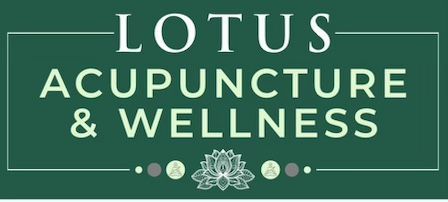Multiple Sclerosis (MS) is a complex neurological condition that affects approximately 400,000 people in the United States, with 200 new cases diagnosed each week.
This
chronic disease can cause a wide range of
uncomfortable and sometimes debilitating symptoms, making it challenging to perform daily tasks.
Understanding Multiple Sclerosis

Why Is Myelin Important?
Myelin plays a crucial role in transmitting nerve signals efficiently. When it becomes damaged or destroyed, nerve impulses slow down, leading to neurological symptoms that can vary in severity and frequency.
Common Symptoms of MS:
- Blurred vision
- Loss of balance and coordination
- Difficulty with speech (slurred speech)
- Chronic fatigue
- Memory problems and cognitive difficulties
- Numbness, tingling, or weakness in the limbs
MS symptoms can differ from person to person—some individuals experience mild symptoms, while others may have more severe or disabling effects. Additionally, symptoms can disappear for a time and then suddenly flare up without warning.
Treatment Options for MS
Your treatment plan will depend on your specific symptoms and the progression of the disease. Doctors typically prescribe medications to manage symptoms and slow disease progression.
However, many people with MS are now exploring
complementary therapies, including
acupuncture and Traditional Chinese Medicine (TCM), to
enhance their overall well-being and quality of life.
How Acupuncture and TCM Can Help with MS
Acupuncture and TCM offer a natural, drug-free approach to help individuals with MS maintain their health and manage symptoms more effectively.
Unlike Western medicine, which focuses primarily on symptom control, TCM takes a holistic approach, considering:
- The individual’s overall health
- Lifestyle and emotional well-being
- Underlying imbalances that contribute to symptoms
The TCM Perspective on MS
According to TCM, Qi (pronounced “chee”) is the vital energy that flows through the body via channels called meridians. If Qi becomes blocked, stagnant, or deficient, health problems—including MS symptoms—can arise.
In TCM, MS is often associated with
imbalances in the Liver, Spleen, and Kidney organ systems, as well as external factors such as
wind and dampness.
Common MS-Related Imbalances in TCM
- Liver and Kidney Deficiency – This can result in muscle weakness, stiffness, and numbness, common symptoms of MS.
- Dampness in the Meridians – Excessive dampness in the body can lead to fatigue, sluggish movement, and coordination issues.
- Qi and Blood Stagnation – Poor circulation of Qi and blood can contribute to pain, spasms, and nerve dysfunction.
Based on your individual diagnosis, your
acupuncturist will develop a treatment plan to restore balance and improve your overall well-being.

What to Expect from Acupuncture for MS
During an acupuncture session, your practitioner will:
- Identify the root cause of your symptoms based on TCM principles.
- Stimulate specific acupuncture points with fine, sterile needles to restore balance and energy flow.
- Use complementary therapies such as herbal medicine, dietary guidance, and mind-body exercises to enhance treatment.
Acupuncture Has Been Found to Help With:
- Pain relief
- Muscle spasms and stiffness
- Bladder control issues
- Fatigue and brain fog
- Anxiety and emotional well-being
While acupuncture
cannot cure MS, many people find it
helps them manage symptoms and improves their overall quality of life.
Self-Care for Managing MS
In addition to acupuncture, lifestyle changes and self-care practices can support both physical and emotional well-being. Your acupuncturist may recommend:
1. Herbal Remedies
TCM herbs and nutritional supplements can help boost energy, circulation, and immune function. Always inform your doctor about any herbal treatments to avoid potential interactions with prescribed medications.
2. Staying Cool
Heat can worsen MS symptoms, so maintaining a cool environment can be beneficial. Try:
- Tepid baths
- Cool beverages
- Air conditioning or cooling devices
3. Gentle Exercise
Engaging in low-impact activities such as yoga, Qi Gong, and tai chi can help:
- Improve balance and coordination
- Strengthen muscles
- Reduce stress and anxiety
4. Managing Stress
Stress can exacerbate MS symptoms, making relaxation techniques essential. Consider:
- Meditation and deep breathing exercises
- Massage therapy to relax tense muscles
- Speaking with a counselor if anxiety or stress becomes overwhelming
Living Well with MS

MS is a serious condition, but many people with MS lead long, fulfilling lives. By incorporating acupuncture and TCM into your treatment plan, you can take an active role in managing your symptoms and improving your quality of life.
If you or a loved one is living with MS, consider consulting an acupuncturist today to explore how natural, holistic treatments can support your health journey.


